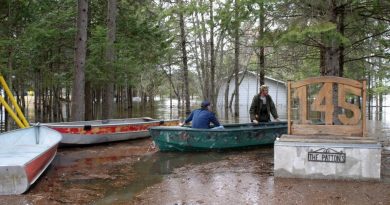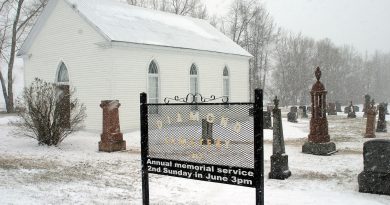Council approves 10 additional police officers
Special to WC Online
OTTAWA – City Council today approved the hiring of 10 additional police officers to deal with gun violence in Ottawa. The officers are expected to be in place in the fall.
Growing concern regarding the increase in gun violence across the country has resulted in the announcement of a federal government grant program, with funding of $100 million nation-wide anticipated to begin in April 2019.
Council also approved a motion to immediately proceed with studying the conversion of the Southwest Transitway to Barrhaven from bus rapid transit to light rail transit service.
Council approved an addition to the Château Laurier hotel, a national historic site. The approval follows two years of public discussion and several iterations of the design.
Larco Investments has proposed a contemporary, seven-storey addition to the rear of the hotel. In revising the design, Larco considered more than 3,000 public comments, along with input from planning and heritage staff, and from The city’s Urban Design Review Panel. The approved design is lower in height than previous versions and uses limestone and bronze to reflect the materials of the historic hotel.
Today’s approval requires that City planning staff work with the applicant to add more limestone to the addition’s exterior, make the north façade less uniform, and introduce patterns and geometric proportions drawn from the historic building.
Council approved a zoning amendment to permit a 20-storey, mixed-use building at the northwest corner of Richmond Road and Woodroffe Avenue. The design includes a four-storey podium and a tower that provides a transition to the low-rise neighbourhood directly to the north of the site. The building will have 166 residential units, underground parking and retail on the ground floor.
Council approved a new area-specific policy to guide development of lands around the future sites of the Cleary and New Orchard light-rail-transit stations. The policy establishes a framework for new buildings along Richmond Road, to reflect the needs of the community as light-rail transit is introduced to the area. The policy will help ensure future development builds on the residential nature of the community.
The policy applies to an area south of the Ottawa River and north of Byron Avenue, between Cleary Avenue and the Sir John A. Macdonald Parkway. It complements the secondary plans for nearby neighbourhoods like Wellington West, Scott Street, Preston-Carling and Richmond Road/Westboro.
Council approved two measures to protect older neighbourhoods. This includes a zoning amendment for residential properties along Island Park Drive, requiring a minimum front-yard setback. The National Capital Commission registered covenants on the title of these properties requiring a 7.6-metre front-yard setback, but those covenants will start to expire in 2020. This rezoning protects that setback and ensures that new development along the street is compatible with existing homes.
Council also approved a Zoning By-Law amendment that will see the Mature Neighbourhoods Overlay apply to lands within the Dow’s Lake, Lindenlea, Vanier and Overbrook communities. The overlay was enacted to protect the streetscape character of pre-1960s neighbourhoods that have heritage value and face significant demand for infill development.
Based on mapping received from the Rideau Valley, Mississippi Valley and South Nation Conservation Authorities, Council approved amendments to update the location of the one-in-100-year flood plain in the Zoning By-law. The amendments ensure The city is using the most up-to-date information in assessing development applications on and around lands that have a one-per-cent chance of flooding in any given year.
Council approved funding for eight energy-efficiency projects, including a pilot to install Canada’s first 150-kilowatt fast-charging station for electric vehicles. The $633,000 in funding comes from last year’s Hydro Ottawa dividend surplus and will support a rebate program to replace wood stoves and energy-efficiency upgrades to City facilities. The spending was part of an update highlighting the second phase of Ottawa’s Energy Evolution strategy.
Council approved three motions related to the environment: one setting a 20 per cent reduction target from 2012 levels for greenhouse gas emissions by 2024, and one requiring staff to consult with festivals about how to integrate recycling as part of these events. Council also approved a motion to ask the Government of Ontario for the authority and funding to regulate non-residential waste, and the power to approve landfill projects.
The city continues to deliver safe and high-quality drinking water. For the sixth straight year, an independent auditor found zero incidents of non-conformance in The city’s quality management system for drinking water, according to an annual management report received by Council.
Council received 12 follow-up audit reports that focus on strengthening management practices at The city, including procurement practices related to the Springhill Landfill contract.
Council received the annual reports of Crime Prevention Ottawa and Hydro Ottawa, along with several financial reports, including the consolidated financial statements for 2017, the sinking fund financial statements for 2017 and the financial statements for in-house solid waste collection.












